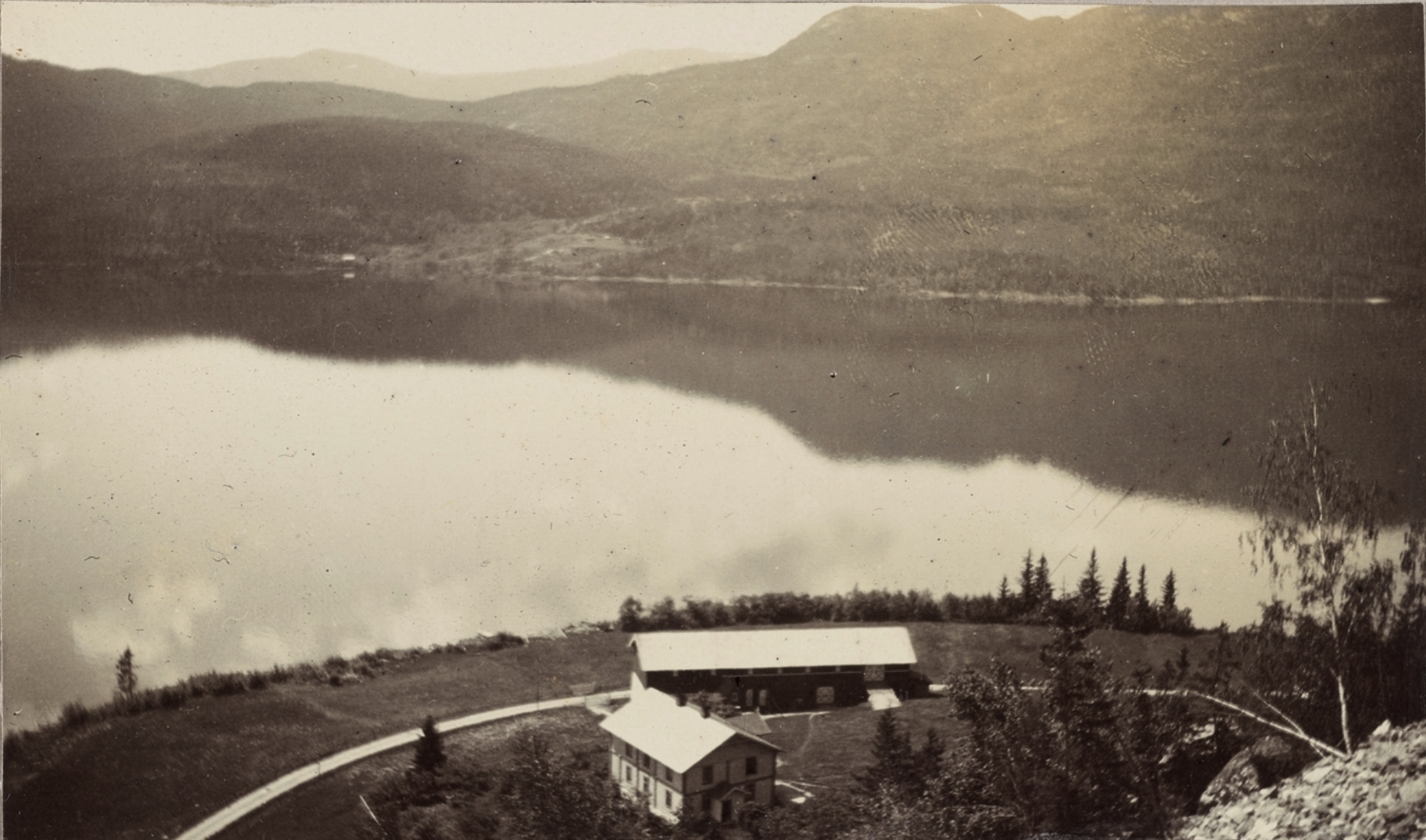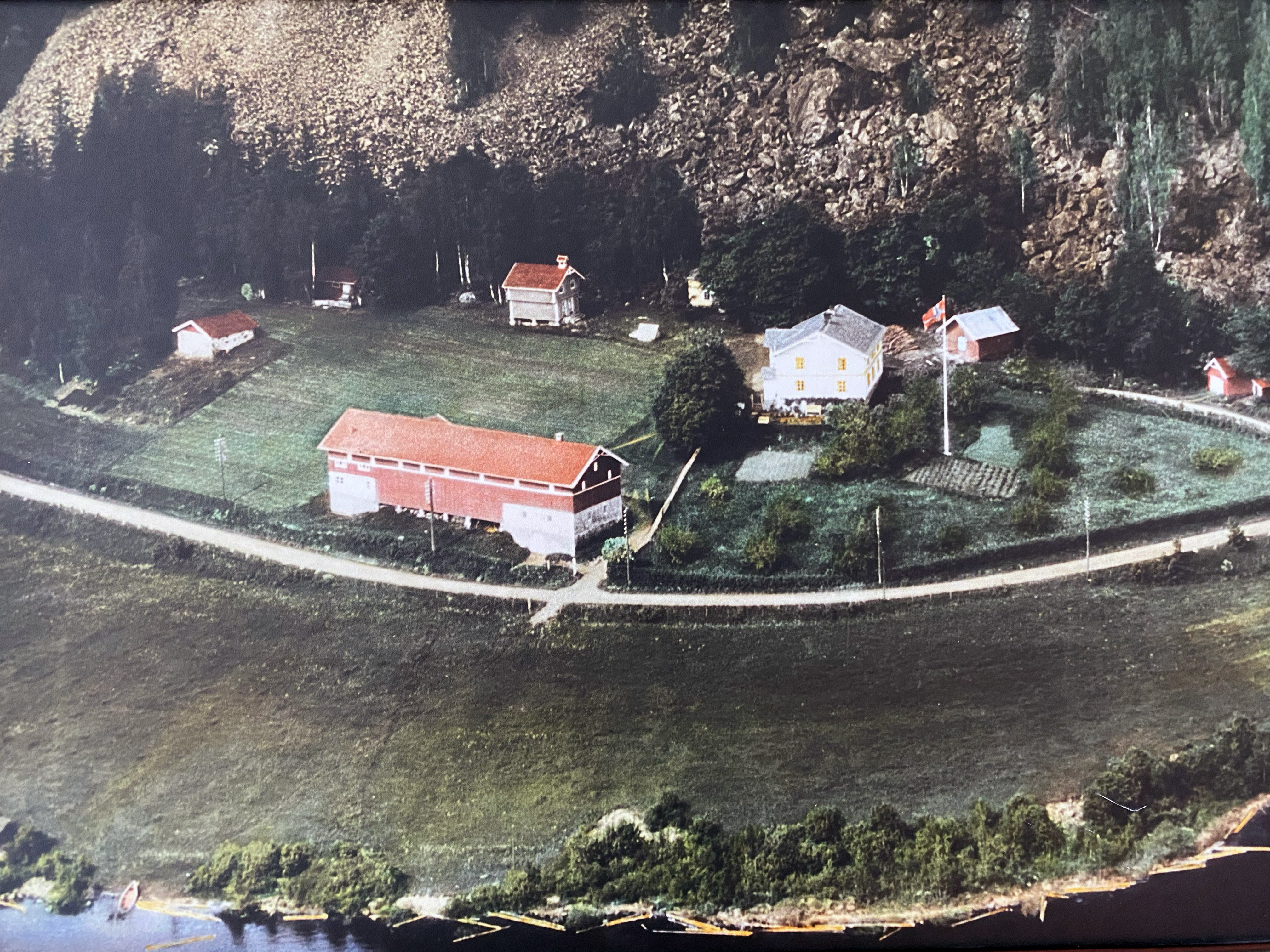The Farm
For us at Incremental, The Farm is both our philosophy and our framework for developing ideas in to viable companies. It consists of five steps, which we describe in more detail in this article.
Where Incremental differs from other zero-day investors is that we will be a part of your team, and not just a financial investor and advisor. We will work alongside you, get our hands dirty, and provide you with much needed staff and services at our own cost and risk during the early days of your company. Essentially, we invest our time in your success. When needed, we can also help you with funding either directly, or though third-party investors.
The five steps of our framework are:
MVP
Commercialization
Scale-up
Growth
Longevity
Epilogue: Background
Step 1: MVP
- Winter is coming
No, Game of Thrones did not invent that quote. It has been uttered by Norwegian farmers (and cold climate farmers anywhere) for as long as there have been farmers. Essentially, you know you have a set amount of time before you have to be ready. Meeting winter unprepared means you have to rely on luck, which is not a position you want to be in.
Every farm was at some point started by someone. This meant going to a new spot in the wilderness, alone or as a group, to prepare the site from scratch. Maybe they were the younger sibling on a nearby farm, knowing their older brother would inherit their family farm, and that they had to make their own living. Or maybe they had wandered off in to the unknown, in search for a better life. They probably went in spring, after the snow had melted, so that they had all of summer and autumn to work before the coming winter.
Whatever their reasons, they now found themselves trying to imagine the layout a future farm where there were currently just rocks and trees. If they came from a nearby farm, they may have had the safety of being able to set up the new farm over several seasons, before committing fully to it. Their first priorities would be to build a viable shelter, and to arrange for a source of food such as an easy or robust crop like potatoes. Or maybe a low – maintenance livestock such as sheep. Essentially, making the farm robust enough to be viable.
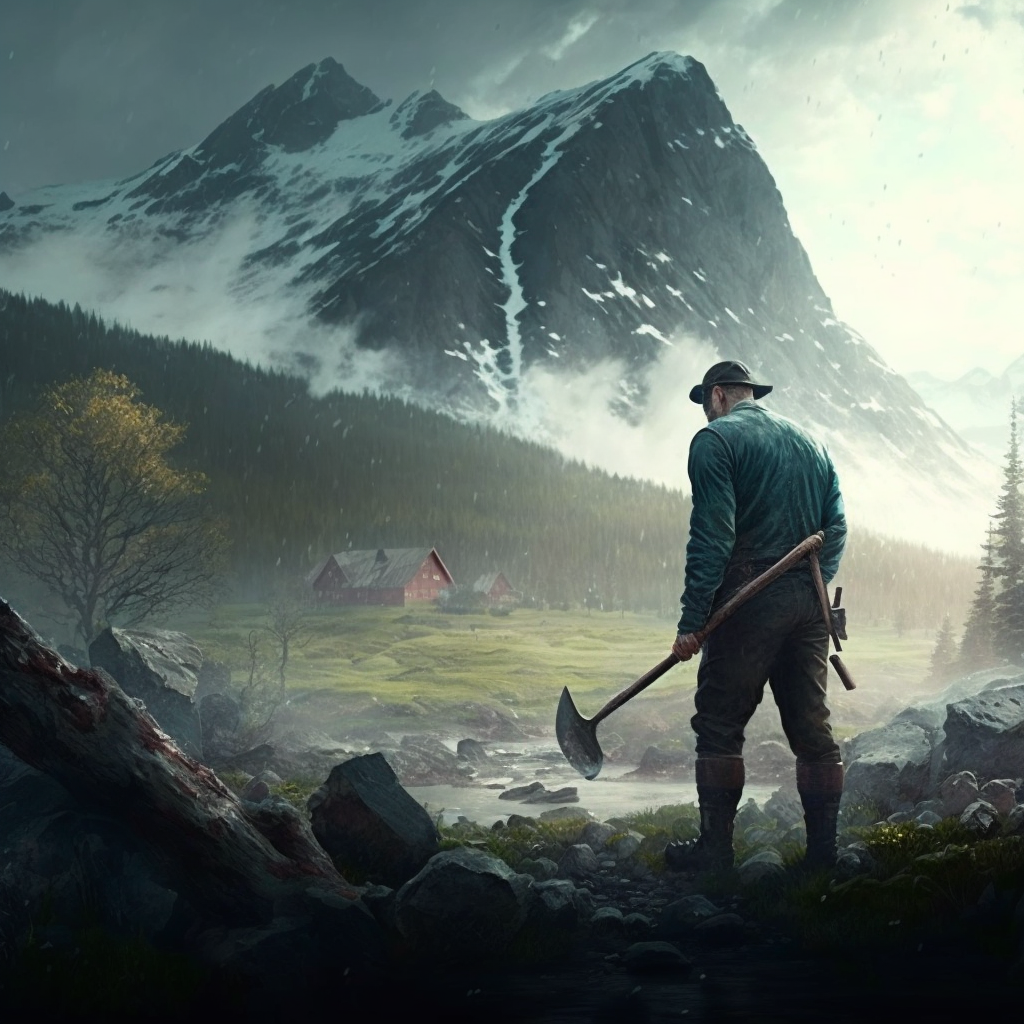
Where is your business at?
You have an idea. Maybe the idea is not yet fully developed. There are a lot of holes and questions. But the idea is there, and it will not go away. Still, it feels risky to pursue your idea and jeopardize what you have. What about your day-time job? What if it doesn’t work out? Do you really have the time, money and experience to try to start something new?
But then again, you see the potential in your idea. And somehow it feels like you’re missing out on a great opportunity if you don’t pursue it.

What does Incremental do?
In this step, we help you get from idea to MVP (Minimum Viable Product) before you run out of time and resources. Essentially, to get you to a point where your idea can start generating revenue to sustain the business. At this point, you will invest your time, and we will invest ours. We will work together, and start by figuring out three things:
1. Where are you at now?
This is not the same as “where do you wish you were at”, or “where do you think you should have been at”. It’s an honest assessment of what you have, and what you know. How defined is your idea? What problem does it solve? Are you able to describe it well? What have you built, or coded? What competitors are there? What are your thoughts on moving your idea forward?
2. Where do we need to go?
What are the requirements for an MVP? What is the addressable market? What do we have to believe in for the idea to be successful?
3. How do we get there?
What is the gap between the MVP requirements and where you are at now? What do we need to plug the gap? How much time do we need?
At Incremental, we prefer to work with asset-light ideas such as software or gadgets in this first step. More industrial, asset-heavy ideas usually have a longer runway, and require significant amounts of capital before reaching even an MVP. If your idea falls in to this category, we will usually need to bring in an investor before we can get going.

Step 2: Commercialization
- Cattle, or wheat?
The family at the farm are starting to see the end of their first winter. They gather around their table to discuss what to do next. There are two competing ideas.
Some want to focus on clearing land for pasture, so the farm can sustain cattle. The wood from land clearing can be used to build a barn. Cattle will provide both meat and milk and can even be sold at the local market for money. But cattle also require hay for the winter, indoor shelter, and daily milking. All of this will eat up a significant portion of the time available to the family, and they will also need money to buy their first few cows and a bull at the market.
Others want to spend their energy of clearing a field for growing wheat. This means the farm can make bread, as well as providing a sellable commodity by fall. They will need to invest in ploughing equipment and a horse, but overall, the wheat project is less resource intensive than the cattle project.
Everyone agrees that both projects have obvious upsides, and that the farm at some point should have both cattle and wheat fields. However, the wheat option provides a quicker return, and requires less up-front investment. They decide to prioritize the wheat field this season, to lay the foundations for cattle next season.

Where is your business at?
Congratulations! Your idea has materialized, you have a working MVP, and you are starting to see the first trickles of revenue coming into your company. Although you probably can’t live fully from it for a while, it still feels very gratifying to see that you have created something that someone is willing to pay for!
You are now faced with some hard choices. You will most likely have a whole bunch of ideas on how to improve on your product, based on feedback from your pilot customers and your own experiences from building it. You probably also have a sense of urgency: Everything has to be done, now! However, it is better to do one thing right than two things wrong. Many companies decide to do everything at once at this stage, using quick-fixes and temporary workarounds that will come back to haunt them later.
You also start to feel the need for added manpower. Your growing business needs someone to handle accounting, customer service, sales and marketing, your home page, and a host of other big and small tasks. All of these other things are diverting more and more of your time and focus away from developing and commercializing your product. But you still don't have money to hire or outsource.

What does Incremental do?
Our goal in this stage is to get your MVP developed to the point where it is a fully commercialized product or service. This usually, but not always, means that your product or service is cashflow positive, and able to cover the running costs of your business.
Our approach to this stage is where we differ from most other zero-day investors. We are operational, hands on, and will actually fill the gaps in your team at our own cost and risk. Depending on your needs, we will be your accounting department, we will build your home page, we will run your IT infrastructure, we will be your sales and marketing team, and we can even take the CEO position if needed.
We will also help you analyze and prioritize. At this stage of your business, cash is king. Your accounting system will give you all sorts of fancy numbers, but what really matters is your cashflow and how you manage it. We have been there before, and we will help you with all the nitty gritty stuff that adds up to a solid picture of the actual state of your business. This in turn is vital for decision-making and prioritization, which is key to successfully surviving this step.
We will also emphasize structure over speed. It is incredibly tempting to move fast, and others will argue that speed matters more than structure at this stage. At Incremental, we want to build the house as if we were going to live in it. We want to make sure your software architecture is right, that your design and sourcing choices ensure a good and durable product, and that all the other behind the scenes stuff that we know pays off in the long run, is done well.
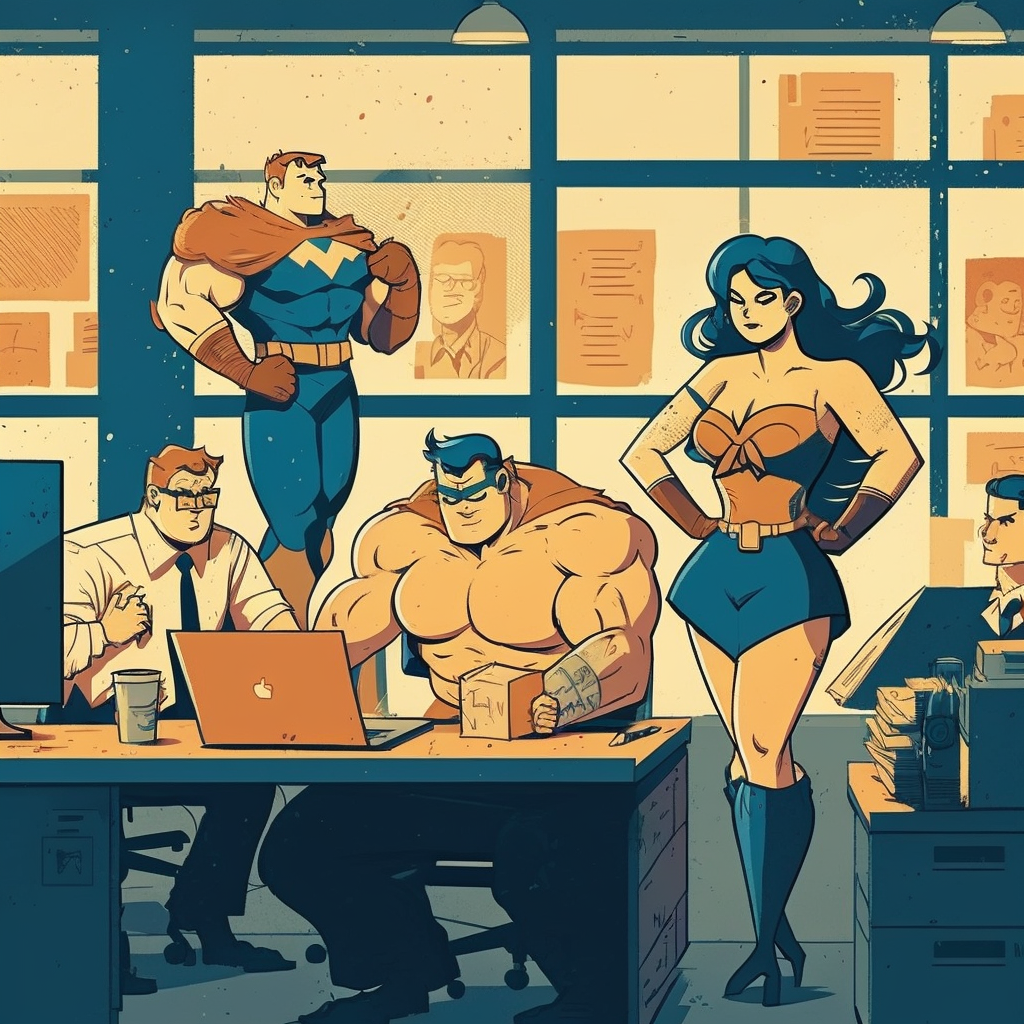
Step 3: Scale-up
- Who is in charge of this mess?
The basics on the farm are up and running, and the family can sustain themselves with time to spare. However, the farm is still not resilient. A crop failure, or someone falling ill at the wrong time, could make everything hit the fan. The family also knows there is demand for products like flowers, timber and honey, and each family member has plenty of ideas of how to diversify into new areas.
The family agrees that everyone can spend their own available time to develop their own projects. But it quickly becomes apparent that this approach has some large flaws. Both the flower project and the honey project had planned to use the same plot of land. When a farmer goes to get the horse to plow the wheat fields, he discovers that the horse has already been taken to the woods for a week by the timber project. Frustrated farmers spend more and more time on looking for equipment or arguing with others.
The farmers agree to a weekly coordination meeting, where they all present what they want to do, and agree on a usage schedule for shared resources. They decide to prioritize projects according to cost, synergies and demand. The flower project and the honey project presents obvious synergies reducing the combined cost of the two projects if both are implemented. The timber project reluctantly agrees to wait in line until more resources are freed up.
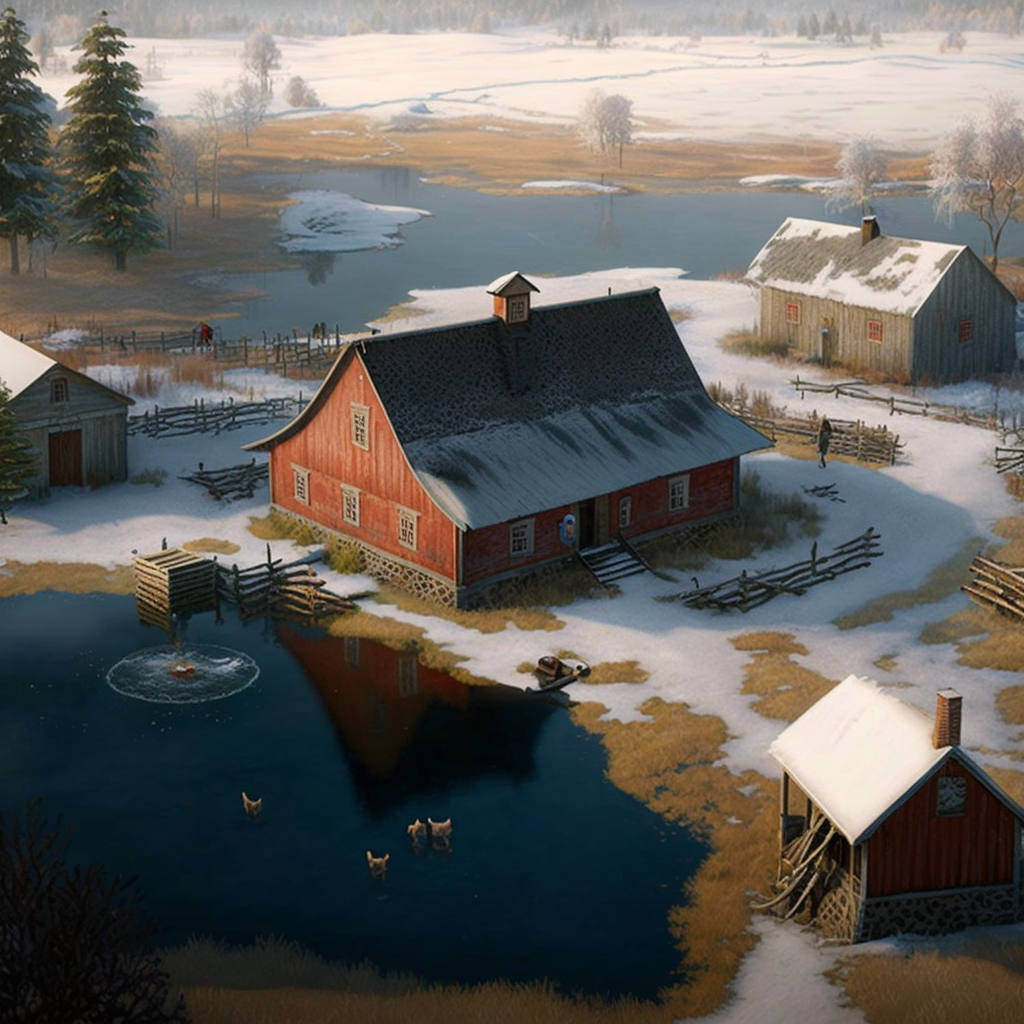
Where is your business at?
Your business is growing. At this stage, your core product is performing well in the market, and you are probably looking to diversify. This could mean that you are developing adjacent products or services, that you are moving into new markets, or maybe all of it at the same time.
Earlier on, when everyone was focused on one task towards one goal, coordination was easier. However, with more and more things going on, you find yourself spending more and more time on resolving little conflicts that arise from misunderstandings, miscommunication, or simply lack of a common situational awareness. You also risk getting more and more unpleasant surprises from project overruns due to lack of oversight, product underperformance due to a “let’s just build it” – approach, and lack of focus on day-to-day operations as everyone is busy with their shiny new pet project.
Your growing business requires more structure, and a more formalized division of duties and responsibilities. You need to spend more time ensuring that everyone has the same understanding of what’s happening in the business, what you are trying to achieve, and why. Typically, this will be in the form of management meetings and townhalls, as well as a lot of informal communication around the coffee machine. This is when you really start to see the value of a physical office, and the chatter it generates.

What does Incremental do?
At this point, we wind down our direct operational involvement in your business. We do this because you are now large enough to manage on your own, because we need our team to support other businesses through their first steps, and because we want to make sure your business is sellable if you choose to do so. We will still be your advisor, be it formally through a board position and specific projects, or informally through phone calls and catch – ups. And we will still hold shares in your business unless you (or someone else) have bought us out already.
We will also use our network to help you find investors or buyers, if and when you are ready for it.

Step 4: Growth
- I don't recognize this place anymore
The farm has been running for a while now, and it is doing well. The ones that founded the farm have grown older, and their kids are taking over more and more of the responsibility. There are grandkids, who have no memory of how the farm was founded, or how it used to look. All they know of it, is through the stories around the dinner table, or when they ride the farm’s shiny new tractor with their granddad.
The family has found a balance between operations and growth. They make sure not to overreach by doing too many new things at once, while never neglecting the underlying day-to-day work that the entire farm relies upon. They have also taken over a few of the neighboring farms, who struggled due to bad luck, hubris, or both. New buildings dot the land, to house workers at the farm.
The founders of the farm are proud. They still remember the adventure, all the stories from the journey, and they are amazed at how far they have gotten. To them, the farm is more than a place to live and work. It is part of their identity.
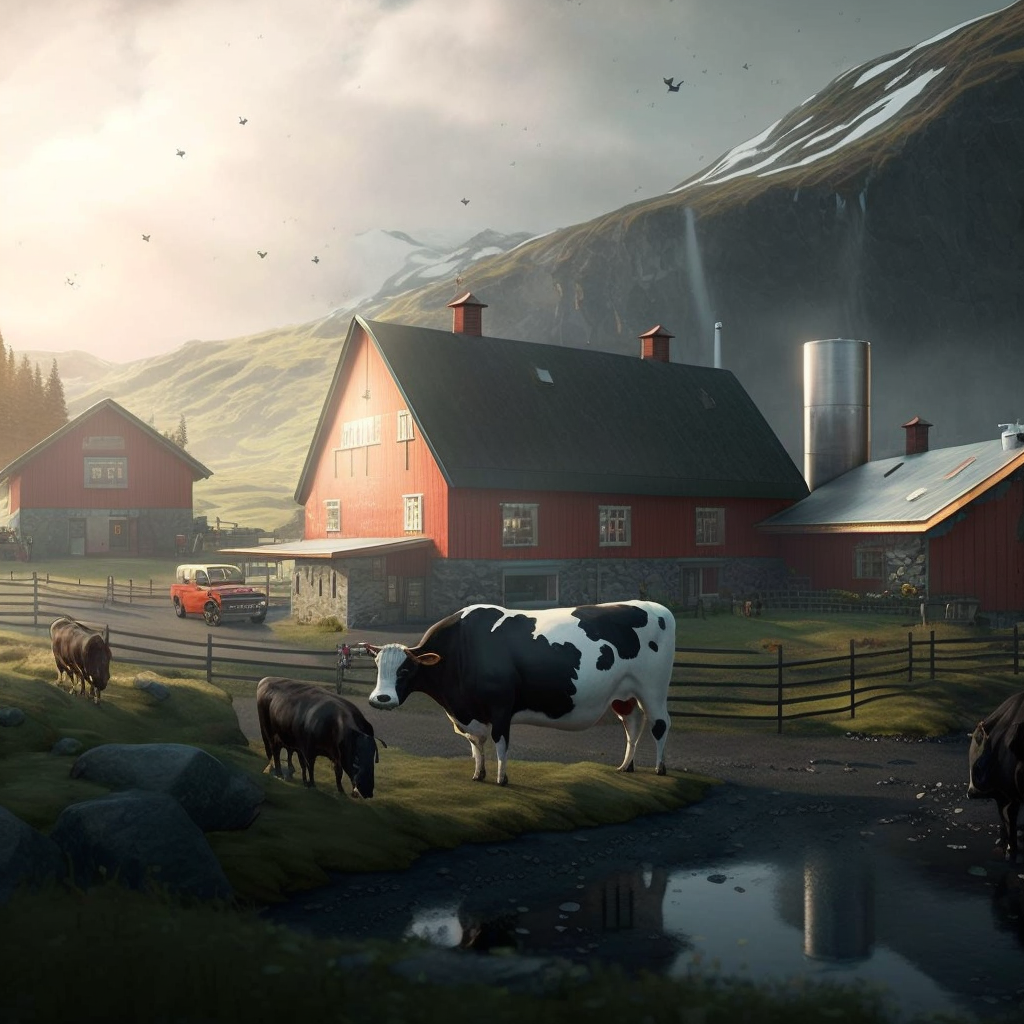
Where is your business at?
Congratulations. You are now managing a real business. Or, maybe it feels more like the business is managing you.
In the beginning, as a manager, you had first-hand knowledge of everything that went on in the business. You knew everyone, and you had recruited everyone. Then, at some point, you realize you’re managing the process that manages the business. You no longer know what everyone is doing, and people you don’t know start to pop up in the office. Your main tasks are to provide vision, direction, structure and to allocate money. You spend more time with investors and consultants, and you learn about your own business through reporting and fancy PowerPoints. This gives you more formal control, but at the expense of speed and agility.
Meanwhile, the old-timers in the business are starting to feel ill at ease. When they joined you early on, they did so because of the adventure and the autonomy. Most likely, these people thrive when they are given ownership and responsibility, when they are trusted, when they feel like they have a real impact. But as the business grows, new departments pop up, decisions become more formalized, and everything turns in to a process, these people lose their motivation.
This is a transformative moment for your business. Your existing business culture was probably built on your initial vision, the common history and shared experiences you had while you were building something together. As your organization grows, and new hires don’t feel connected to the company’s history, you have to work harder to retain that special something which makes your company more than just another place to work.
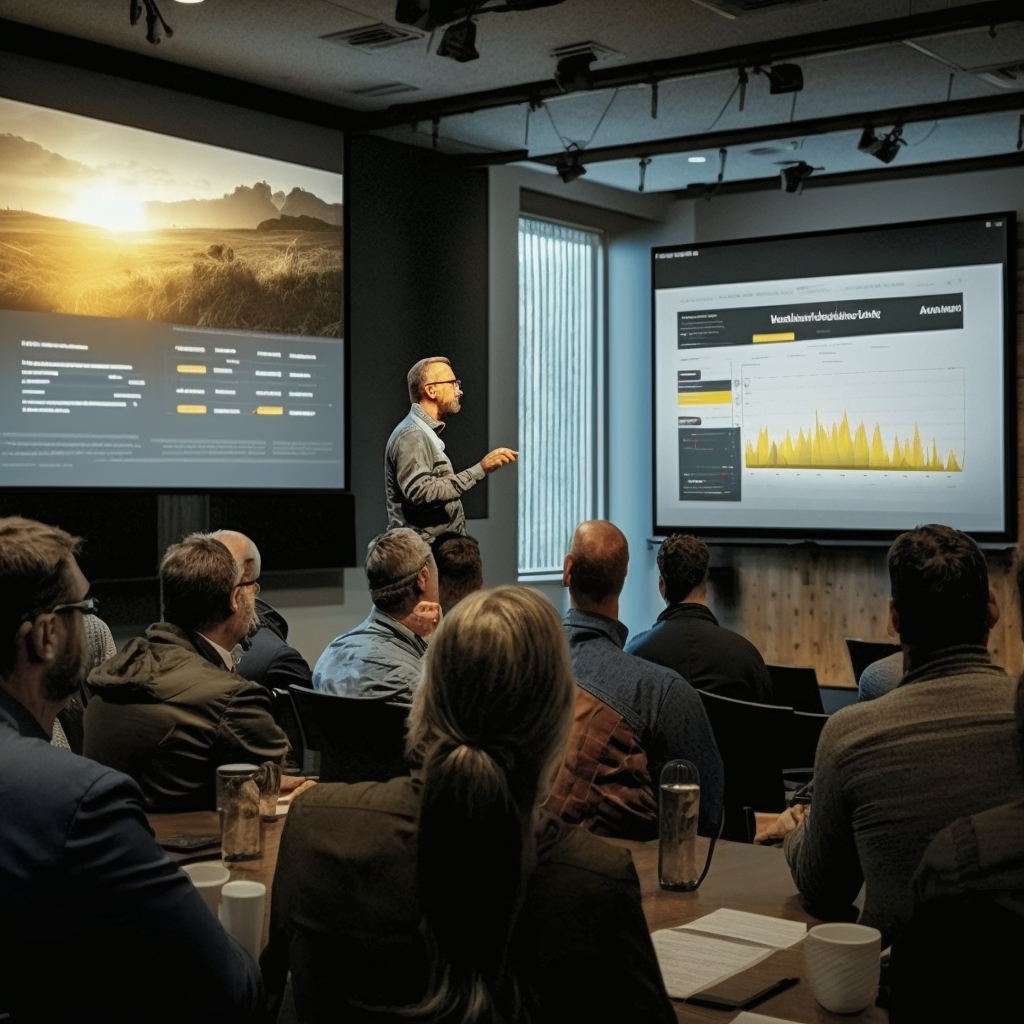
What does Incremental do?
Many books have been written about how to successfully grow a company, and the value of culture. There are people and faculties dedicated to it, and new research provides more insight every year.
At Incremental, we believe that growth is about more than just making more money. We believe there is a fundamental flaw in accounting: The value of people is not reflected in the balance sheet. We believe in soft values such as purpose and self-realization. We value the shared experience as much as the money. In life, we remember the moments, not the cash. We remember the celebratory dinner with the team when we finally made it, we love the joy of building something together. And when we do fail, we do so as a team.
We know the business side of growth well, from our own experience. Make no mistake: A business that does not make money, is not a business. But in our view, you will be more resilient, more cost-effective, more dynamic, agile and innovative, if your team is motivated and engaged. And, ultimately, we believe this translates into long term value.
If this rings true to you, we will happily work with you through the growth phase, both on the strictly-business-stuff, and on the culture stuff. We will help you find a shared, no-bullshit vision to grow your company on, and we will help you structure the company so that the culture is embedded in its walls, and not just in a fancy, dead PowerPoint. This is no easy task. But if we succeed, your business will not be a place where dreams go to die.

Step 5: Longevity
- Innovate or die
A new generation has taken over at the farm. As time goes on, they discover that the concept of farming itself is slowly changing. Innovations in businesses completely unrelated to farming, are fundamentally altering both how they run their own farm, and demand for products supplied by the farm.
The farm’s timber business used to be profitable due to its location next to a large river which enabled easy floating of logs downstream to a sawmill. Later, as log transportation moved over to roads and railways, the farm was lucky enough to be in the vicinity of both. But as global transportation costs fell, and as customer preferences changed, the farm found its timber business outcompeted by timber from far-away places such as Russia and Brazil. Other advances in drone technology and robotics greatly reduces the cost of growing certain crops, and provide ever-increasing economies of scale.
As a result, the farmers have to continuously re-evaluate the way they are operating, and what they produce, in order to keep the farm going. They have to make hard choices, killing business areas that their parents were once so proud to create. But they know that failure to do so puts the whole farm at risk.
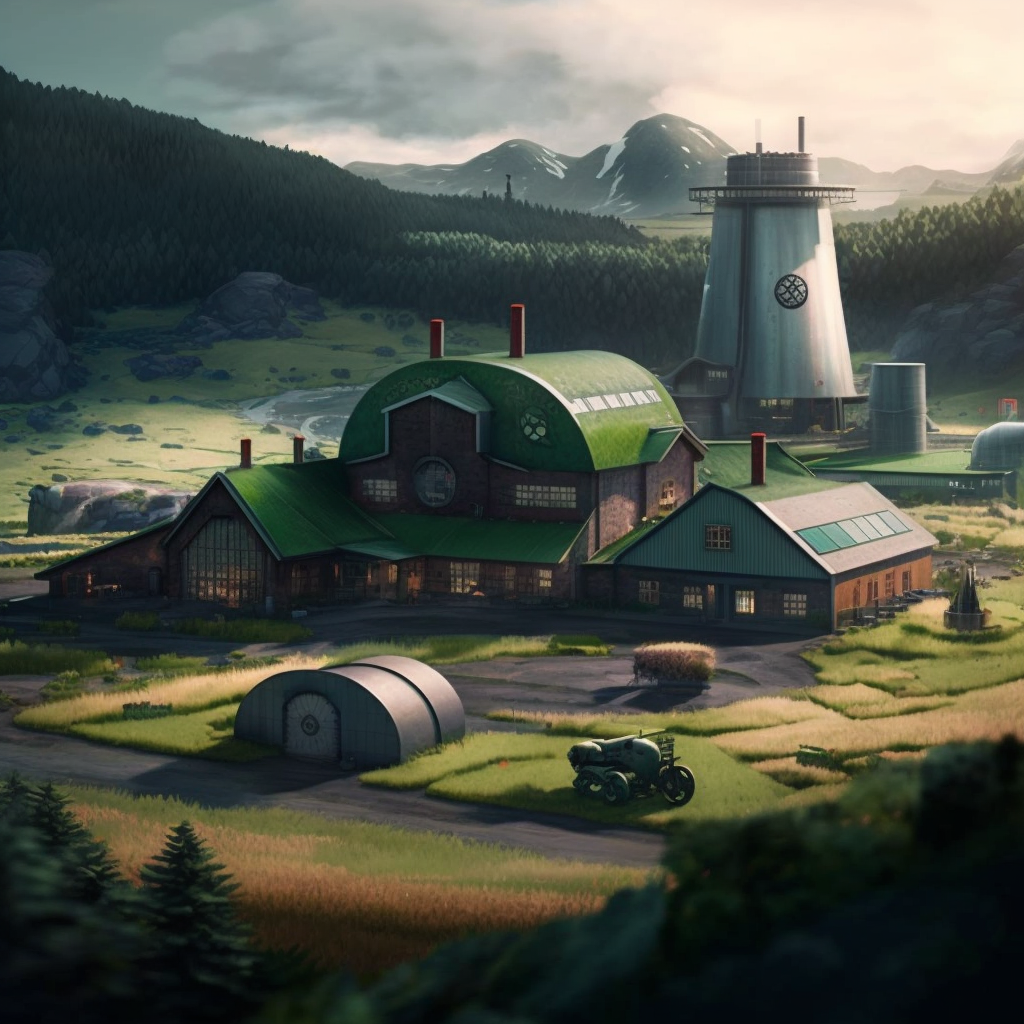
Where is your business at?
If you made it this far, you are one of the very few. Most companies do not get past their initial idea. They might have failed on one of the steps along the way, they are acquired by another company (which is usually a success!), or they are simply made obsolete before they can pivot to something else.
As an example, if you ran a fleet of sailing ships, and you didn’t manage the transition to steam or motor in time, you would at some point inevitably go out of business. The last of the large commercial sailing ships, the Pamir, sank in 1957 due to poor maintenance. The ones that do survive over generations, have either pivoted from idea to idea over time (like Peugeot), or they have mastered all the disruptions to their legacy business over the years (Like Lloyd’s).
If your company turns in to one of the world’s long-lasting ones, you have probably mastered the art of innovation and change at a systemic level. Your core competency is no longer just your original field of expertise, but company strategy and change management in itself. And you will belong to a very exclusive group of peers.

What does Incremental do?
At this stage, all we can do is to sit back in awe. We will be proud that we got to play a role in the early days of a legendary company. And we will try our best to learn from your journey, to the benefit of other companies who aspire to one day become as successful as you.

Epilogue: Background
My mom grew up on a farm, built up over generations. The farm’s main source of income is forestry, but they also used to keep livestock and grow crops for self-sufficiency. When my mom was 12, they moved to the city so that my deaf uncle could attend special school. However, the family kept the farm, and as a kid I used to go there for holidays. That being said, when you’re on a farm, it’s not always a holiday. I was one of the few suburban kids who actually knew why you have an autumn break from school.
As for my dad, he grew up in the city. His dad came from a line of hard-working, self-made academics who weren’t afraid to get their hands dirty. His mom came from a line of entrepreneurs who set up trans-Atlantic steam ship services to Argentina and Brazil in the late 1800s, later diversifying in to motor ships and industrial freezing facilities.
When I was younger, I didn’t really give much thought to any of these family journeys. But, as I keep completing more and more rounds around the Sun on this little rock that we call home, I realize that all their paths have had a significant impact on who I am. And, that their stories actually have quite a bit in common.
Through my own experience I have also come to realize that a lot of the basics of setting up, scaling and operating a successful farm holds valuable lessons for how to set up, scale and operate a successful business in general. This is the base of the Farm philosophy and framework, which we use to guide us through the various steps of launching a business.
